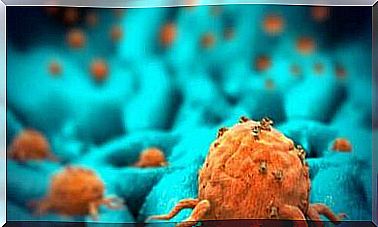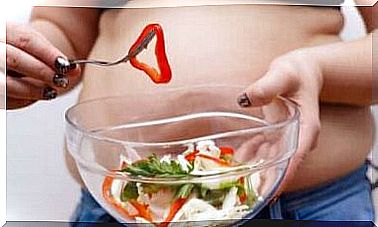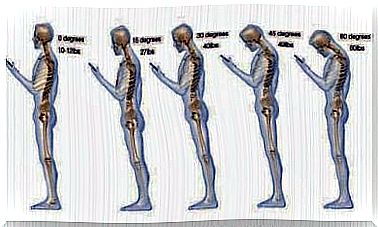Inflammatory Bowel Disease: What Diet To Adopt?
The key to the diet for inflammatory bowel disease is to adapt it to the symptoms and phases of each patient.
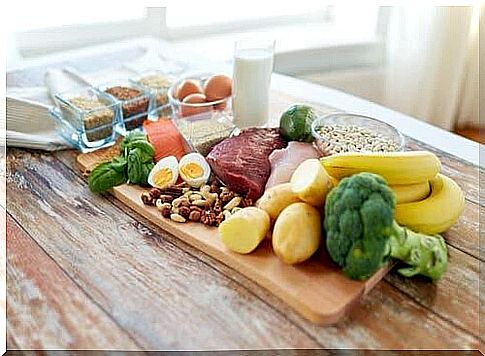
Malnutrition is a common feature among people with digestive disorders. Specifically, diet for inflammatory bowel disease is the key to decreasing and relieving symptoms. Here is more in this article.
What is inflammatory bowel disease?
The digestive tract can suffer from various types of ailments which can affect the state of health. One of these is inflammatory bowel disease (IBD). This is a term used to refer to chronic diseases of the digestive tract, of unknown causes, which are characterized by the appearance of inflammation.
The two most common IBD are chronic ulcerative colitis (CUC) and Crohn’s disease (CE). There is a third entity called indeterminate colitis which shares the characteristics of the previous two and which, as it evolves, can be identified with one or the other.
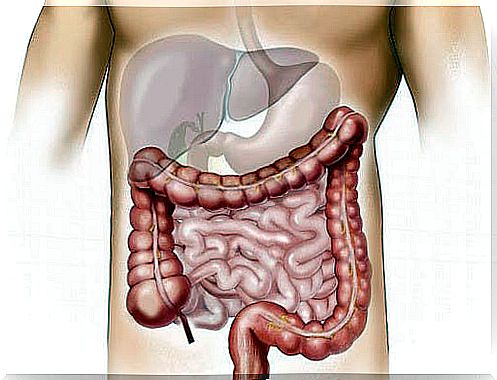
What are the characteristics of inflammatory bowel disease?
Crohn’s disease
It can affect any part of the digestive tract. However, the most common areas are the distal small intestine and the ascending colon. The lesions are segmented and can damage all layers of the intestinal wall.
Ulcerative colitis
This disease exclusively affects the colon and rectum. The lesions are continuous and appear on the mucous membranes and submucous membranes. On the other hand, these diseases impair the function of the immune system of the digestive tract, causing a prolonged inflammatory reaction.
What are the different symptoms of inflammatory bowel disease?
The most common symptoms of these two diseases are intense colic as well as chronic diarrhea with blood. This results in weight loss, malnutrition, fever and lesions on the skin and joints.
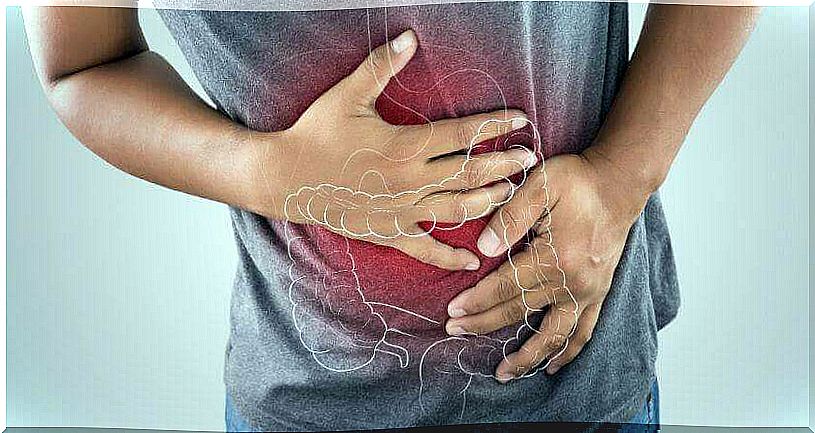
Lesions in the intestinal lining lead to several associated nutritional problems, such as:
- Anorexia
- Edema
- Anemia
- Dehydration
- Loss of protein and vitamins
- Alteration in the balance of minerals such as zinc, iron, magnesium, calcium and selenium
Causes of malnutrition
Malnutrition is the result of various factors such as:
- Decreased food intake
- Pain, pain, diarrheal episodes and vomiting
- Exclusion of certain foods
- Increased needs due to fever, stress and loss of protein
- Poor absorption of nutrients
- Drug-Nutrient Interaction: The drugs used to treat these conditions are anti-inflammatory drugs, corticosteroids, immunosuppressants, and antibiotics
What diet for inflammatory bowel disease?
It should be noted that IBD presents phases of remission as well as phases of reappearance of symptoms with acute episodes. Therefore, the diet will depend on the phase. When there are no symptoms, it is possible to follow a healthy eating program without the necessary restrictions.
In acute phases, it is essential to adapt the diet to cover nutritional needs. It is therefore essential to eat several meals during the day, to consume a lot of water and to avoid extreme cold temperatures.
In addition, the low-carbohydrate short-chain diet, or FODMAP, is beneficial in treatment. Consider the following portions:
- 50-60% of calories in carbohydrates
- 15 to 20% protein
- 25 to 30% fat, limiting them in the event of loss in the form of diarrhea
On the other hand, remember that in some cases it is possible to develop severe malnutrition with intestinal damage. In this situation, the option is parenteral nutrition or central feeding.
Foods to avoid with symptoms
During a symptomatic phase, it is advisable to avoid all foods that can produce gas and generate discomfort. For example :
- Legumes and grains
- Dairy products, mainly milk
- Potatoes, sweet potato, corn, yucca, garlic, onion, cabbage
- Hard cheeses and condiments
- Fresh and dried fruits
- Honey, sugar, candies, syrups, jams sweetened with sweeteners such as xylitol or sorbitol
- Processed meats, cold meats and derivatives
- Alcoholic and soft drinks and sodas, fermented drinks and coffee
- Hot or very spicy foods
In addition, it is necessary to evaluate a possible deficiency in vitamins and minerals. In this case, taking supplements is possible.
Food when there are no symptoms
For all the reasons mentioned above, when the symptoms disappear, it is essential to gradually reintroduce the restricted foods. We usually start with:
- Cooked vegetables that contain soluble fiber such as: squash, pumpkin, carrot, beet, zucchini
- Steamed or baked fruits: apple, ripe banana, apricot, peach, pear
- Cereals and refined derivatives
- Low fat meats, such as fish and chicken
Finally, it should be noted that the progression of the diet can take several weeks and must be adapted according to the patient. The time between one progression and another depends on the symptoms. In conclusion, the key to the diet for inflammatory bowel disease is to adapt it to the symptoms and phases of each patient.



